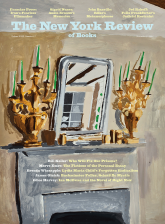When dead blue bridegrooms from Russia come back from the war they lie down forever in bed with their brides. They are lying between clean sheets as if they were lying in coffins and the still living women are lying next to them as if they were lying in coffins and all the people in every prefabricated concrete high-rise are lying as if they were lying in coffins.
And they are horrifying, these bridegrooms. They are not just blue and reeking like an abattoir, they also have individual injuries: the guts of one are hanging loose, half the face of another is baked together and runny, yet another is missing both legs. It is hard to love bridegrooms like these but it isn’t easy to bury them, either. The women sigh and lie down beside them, trying to conceal their revulsion because they feel pity. They have no more strength, no more tears, they don’t know what he died for, and it is not possible to ask or remember anymore whether he loved. Bridegrooms keep to themselves now, those who still have fingers can merely point soundlessly at something. The other day one was sitting with his mouth open and poking his finger at it. His bride thought he was asking for food, put a piece of bread soaked in milk under his swollen tongue, but the bread tumbled out unchewed.
Not much of a living can be made in the afterlife, so these days they put some of the funeral benefits aside for the wedding. A bit of bonuses, compensations, a drop of this, a drop of that, you survive. In the coming days this one couple—he dead, she living—will hold the wedding and the funeral reception together to avoid going through the expenses twice. First the bridegroom is mourned and then everybody congratulates the happy couple. Since the bride is at the same time a widow, she puts on a special ensemble: white dress with a black veil. Whereas the bridegroom is to be dressed in his father’s suit, the father got blown up back in Chechnya, but now the suit suits the son, the whole family is proud.
True, the brides are afraid to be left alone with their bridegrooms for the wedding night. For people are weak and it’s hard for the living to desire the dead. It’s as if you were betraying him, as he was when living, with the same him, who is now dead. It’s as if there were two separate human beings—the one living and the one dead. And you can’t choose between them anymore.
Of course the women would have preferred the living. It felt so good to kiss them under the apple blossoms in the first days of May. Or to save up together for a seaside vacation. Or to drink tea with rolls from the kiosk on the way to work. Or to send them to the all-night store for sprats in tomato sauce during the first pregnancy. At night, lying beside their immovable dead, they fantasize about the living. God be their judge.
This Issue
November 3, 2022
Gored in the Afternoon
The Illusion of the First Person
Reform or Abolish?



